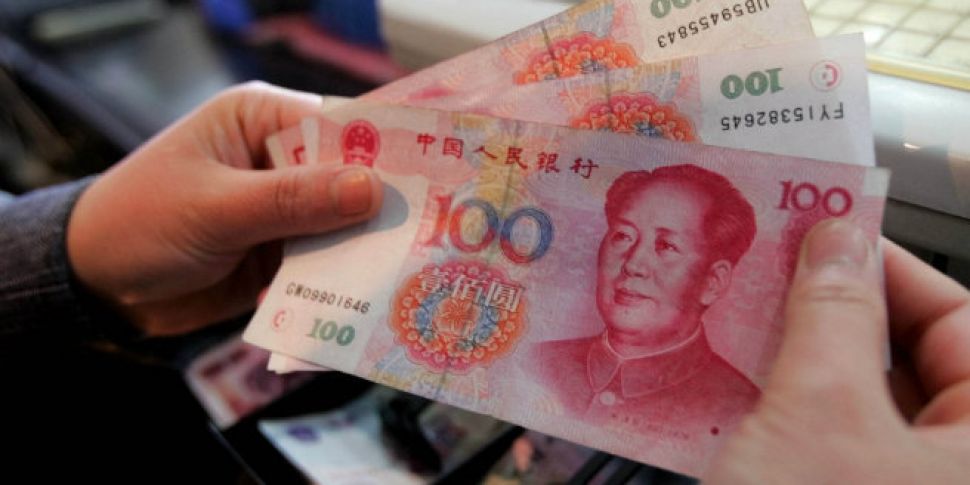The Irish stock market has regained much of the value it lost in yesterday's "Black Monday" slump.
The ISEQ index of Irish shares finished the day over 4% higher.
The FTSE 100 index of Britain's leading shares also clawed back many of the big losses it sustained on so-called 'Black Monday' - boosted by a fresh interest rate cut in China.
The Footsie ended Tuesday up 182 points (3.09%) at 6081 after it lost around 289 points (4.7%) a day earlier in its biggest daily drop since 2009.
There were also increases in European markets, with Germany's DAX and France's CAC both up more than 4% at the close.
America's Dow Jones was also in positive territory, adding around 2% after it suffered big losses in the previous session.
Bond yields and oil prices also rallied on the Chinese intervention.
Beijing is to cut core interest rates in a renewed attempt to stimulate its slowing economy and help address a sell-off of Chinese shares.
It is the fifth time in nine months that the People's Bank of China (PBoC) - the country's central bank - has slashed borrowing costs.
Chinese stocks tumbled again on Tuesday - plunging more than 7%, and hitting their lowest level in eight months.
Panic selling intensified after the flagship Shanghai Composite Index crashed through the psychological barrier of 3,000 points.
The index ended down 7.6% at 2,964.97, while the blue-chip CSI300 index fell 7.1% to 3,042.93. Japan's Nikkei dropped nearly 4%.
China's central bank said the benchmark rate for a one-year loan would be cut by 0.25 percentage points to 4.6% and the one-year rate for deposits would fall by a similar margin to 1.75%.
It also increased the amount of money available for lending by reducing the minimum reserves banks are required to hold by 0.5%.
Analysts said that would result in 650 billion yuan (€88bn) being released into the Chinese economy.
On Monday in the US, the Dow plummeted by an unprecedented 1,000 points, before closing down 588 - its worst decline for four years.
"In much the same way as we had a broad mark down yesterday, we've had a broad pull up today," said Richard Hunter, head of equities at Hargreaves Lansdown.
"It's possible that the market is now considering that it might have overshot slightly yesterday."
But the FTSE 100 remains in "correction" territory, more than 10% off its all-time closing high of 7,104 back in April.
However, almost all top-flight shares rose on Tuesday, with the index pulled higher by a recovery in commodities stocks which have been pounded by falls in metal prices caused by China's woes.
Goldman Sachs has reduced its three-month outlook for the FTSE to 6,000 points from 6,900 points, although it believes the global economy is not at risk of recession.
The mass sell-off was triggered by China's slowing economy - as well as plunging commodity prices and fears over the timing of the next US interest rate hike.
The People's Bank of China is under pressure to announce a new round of quantitative easing to boost money supply in an economy suffering weaker demand across all sectors.
Beijing has intervened numerous times to try to stop speculators selling vulnerable assets, including allowing the state pension fund to invest up to 30% of its assets in Chinese stocks.
However, China's policymakers have largely sat on their hands during the last few days of bloodletting - to the frustration of investors hit by plunging portfolios.
Many analysts predict a continued deceleration - rather than crash - for China's economy, and dismiss comparisons with the 2008 global depression or the Asia crisis 10 years before that.









